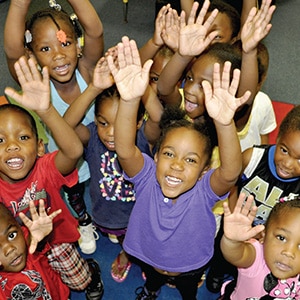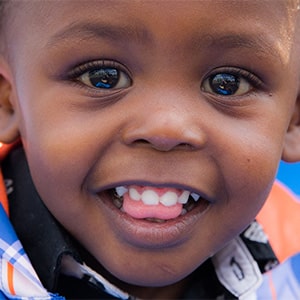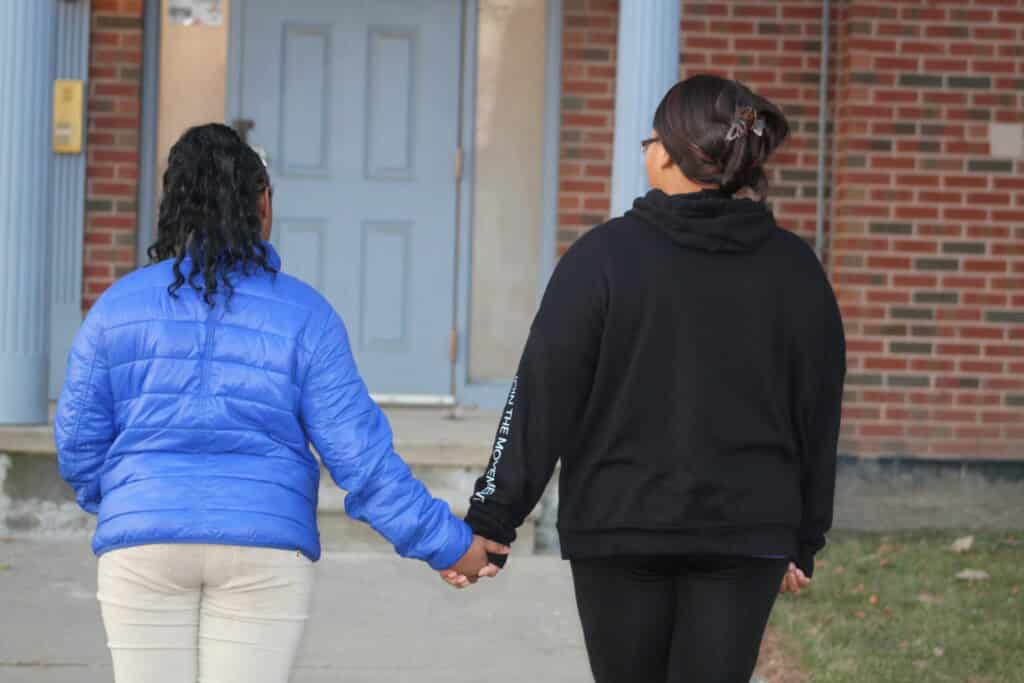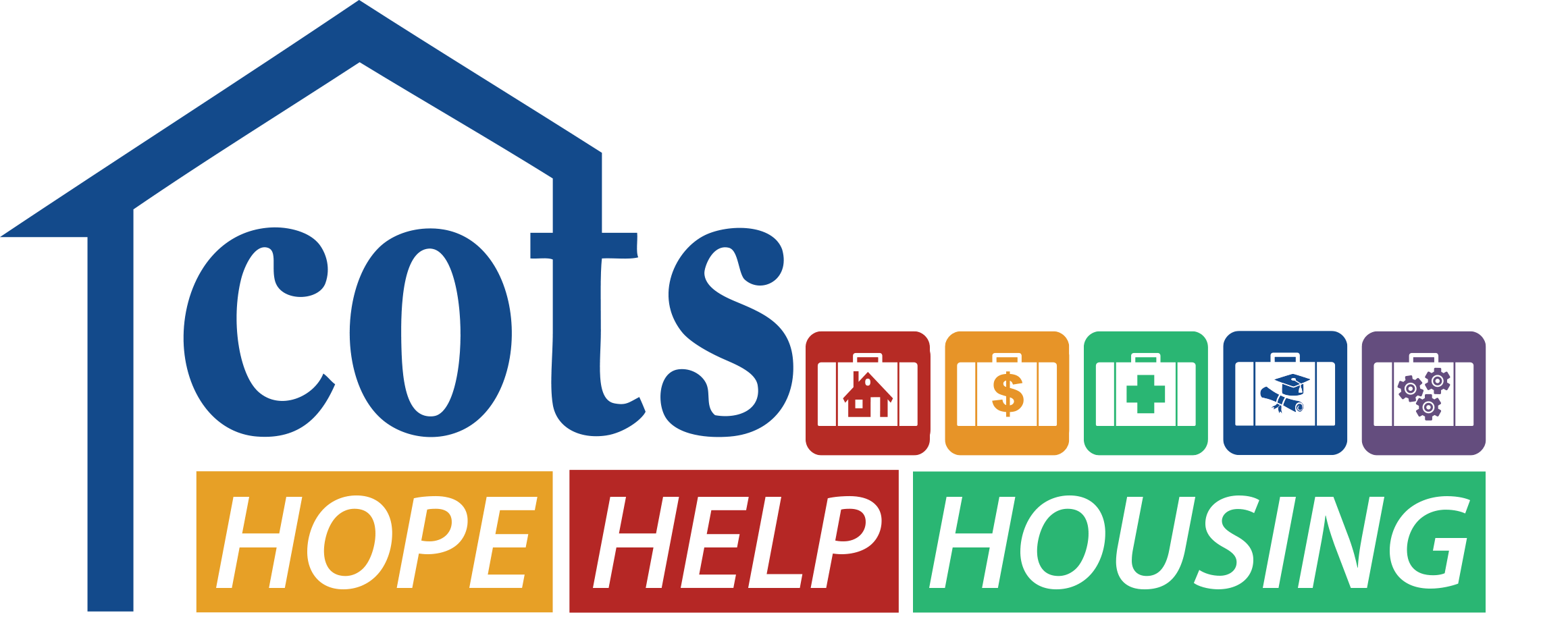




VISION
We hope that we will all one day see a perpetual cycle of thriving families and the absence of generational poverty.
MISSION
COTS exists to create and facilitate opportunities that empower families in poverty to collaborate, thrive, and succeed in building strong households, neighborhoods, and communities.
PURPOSE
To assist families in reaching their housing, economic, health, education, and career goals as they overcome
homelessness and break the cycle of poverty for themselves, their next generation, and beyond.
VALUES
COTS aspires to its vision and achieves its mission by embodying the values of: Integrity, Impact, Service, Human Dignity, Collaboration, and
Generosity of Spirit
For 40 years, COTS has served the most vulnerable members of the Detroit community with shelter, housing, child care, and other basic needs. Over time we noticed an increasing number of families with children enter our emergency shelter only to see these children return years later as adults with children of their own. We realized that while we were providing vital housing to hundreds of families experiencing homelessness, we were not addressing what was, more often than not, the root cause of that homelessness. We were witnessing cycles of generational poverty that housing alone would not eliminate.


With the realization of poverty as the driver of homelessness and our need to address it came our theory of change for disrupting generational poverty. After making the necessary organizational changes to put theory to practice, COTS’s focus is now exclusively on engaging families to develop economic self-sufficiency and stabilized environments to create a multi-generational impact and ultimately break the cycle of poverty. This innovative approach is called Passport to Self-Sufficiency™. Passport to Self- Sufficiency™ (PTS) is COTS’s poverty reduction and alleviation framework used across all programs and projects in the organization. Using a two generation, whole-family approach, we partner with families who are currently or at risk of experiencing homelessness to provide long-term services that are person centered, strengths-based, and trauma-informed.
The effects of instability, family stress, worry about physical safety, and constant change on the lives of poor and homeless children and youth is often invisible to them, their parents, and the community. But these factors impact not just their behavior and their academic performance but also their ability to see themselves as architects of their own lives and to successfully shape their lives. With this in mind, COTS coaches support each child as they set goals that focus on the development of social-emotional and executive functioning skills they need to navigate challenges and create a successful future.
Through one-on-one interviews, focus groups, listening sessions, and surveys, COTS engages families in our programs to learn what is working and how we might enhance our approach. This direct insight from our families informs our work; allows us to better serve our mission to break the cycle of poverty for this generation and beyond; and helps us to Create Opportunities To Succeed.

HEALTH AND WELL-BEING
SELF-REGULATION
SOCIAL EMOTIONAL BALANCE
PREPARING FOR INDEPENDENCE
EDUCATIONAL PROGRESS
<<>>

Relationships are the foundation for this human-centered approach. Connection between the people in our organization, our strategic partners, and the families we partner with helps to create or enhance a positive social network of love and care. True connection and partnership with families is the backbone for long-term commitment that helps families to overcome barriers to their success. The PTS Mobility Coach and the head of household partner to set goals across five domains: Housing and Family Stability, Economic Mobility, Health and Well-being, Education and Training, and Career and Employment. These five domains also have been identified as critical to self-sufficiency through extensive research by Economic Mobility pathways in Boston. Their research incorporates Harvard University’s findings on poverty and brain science, toxic stress, executive functioning, and self-regulation.
